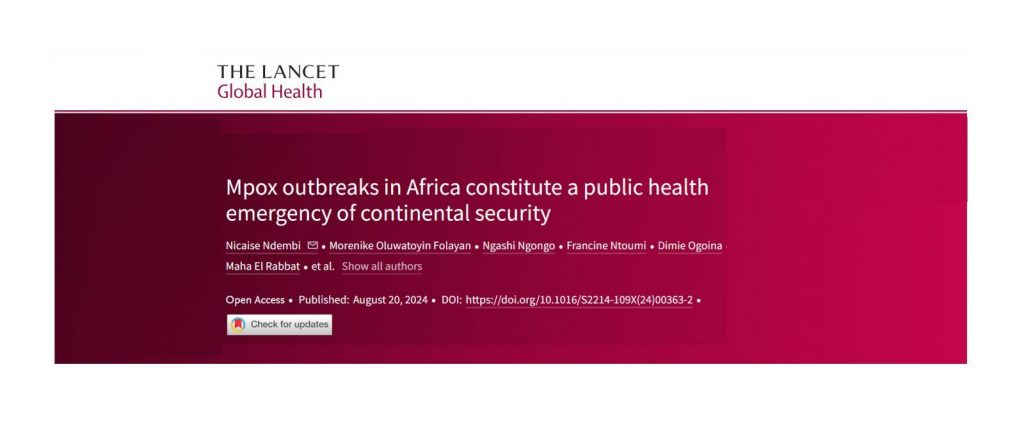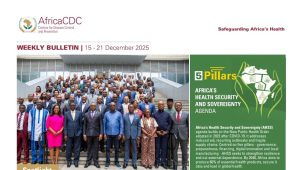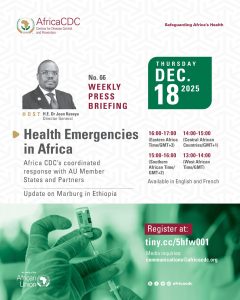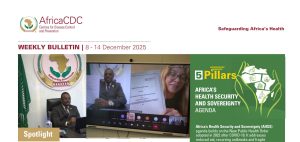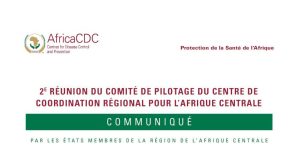On Aug 13, 2024, the Africa Centres for Disease Control and Prevention (Africa CDC) declared mpox a public health emergency of continental security (PHECS) in Africa, acting under its mandate to address significant public health threats. This mandate was established in July, 2022, by the Executive Council of the Africa Union (AU) Assembly through its decision EX.CL/Dec.1169(XLI), empowering Africa CDC to coordinate responses to epidemics by mobilising African leaders, governments, and relevant agencies.
The decision was driven by the worsening mpox situation on the continent: since 2022, 40 874 cases and 1512 deaths have been reported across 15 AU member states. In 2024 alone, 17 541 cases and 517 deaths have been reported from 13 AU member states. These figures represent a 160% and 19% increase in the number of cases and deaths, respectively, in 2024 compared with the same period in 2023. A 79% increase in the number of cases was observed in 2023 compared with 2022. The Democratic Republic of the Congo (DRC) accounts for 96% of all cases and 97% of all deaths reported in 2024.
Investigations in the DRC suggest that heterosexual transmission, especially among female sex workers (9%), is driving the outbreak,
contrasting with the spread mainly among men who have sex with men in Europe in 2022. The high prevalence among women raises concerns about vertical transmission risks and adverse pregnancy outcomes.
The high risk of severe infection among people living with HIV, considerations for asymptomatic infections, poor vaccination strategies, limited access to medical countermeasures, and low detection rates were other concerns. The outbreak is further complicated by a high case fatality rate of over 3·9%, particularly among children younger than 15 years, who account for 60% of cases. Cross-border movements, low public awareness, high vulnerability due to factors such as HIV and malnutrition, limited understanding of mpox transmission, and insufficient response capacities, including vaccine shortages, pose significant challenges to containment. The risk of mpox spreading to neighbouring countries and globally is high.
The day before the PHECS announcement, 15 of the 20-member Emergency Consultative Group (ECG) met to advise the Africa CDC Director General on whether the mpox outbreak constituted a PHECS. The group redefined PHECS as a significant event posing a risk to other countries, requiring immediate continental-level action to prevent and mitigate disease spread—expanding the original definition in the Africa CDC statute.
They also developed specific criteria to assess the situation objectively. These criteria, organised into nine areas, included: disease severity, transmission dynamics, impact on health systems, vaccine and treatment availability, public health risk, economic and social impact, public concern, global health security, and political considerations (table). The framework was developed to guide a transparent and consistent decision-making process for declaring a PHECS in Africa.
Read more – Mpox outbreaks in Africa constitute a public health emergency of continental security

